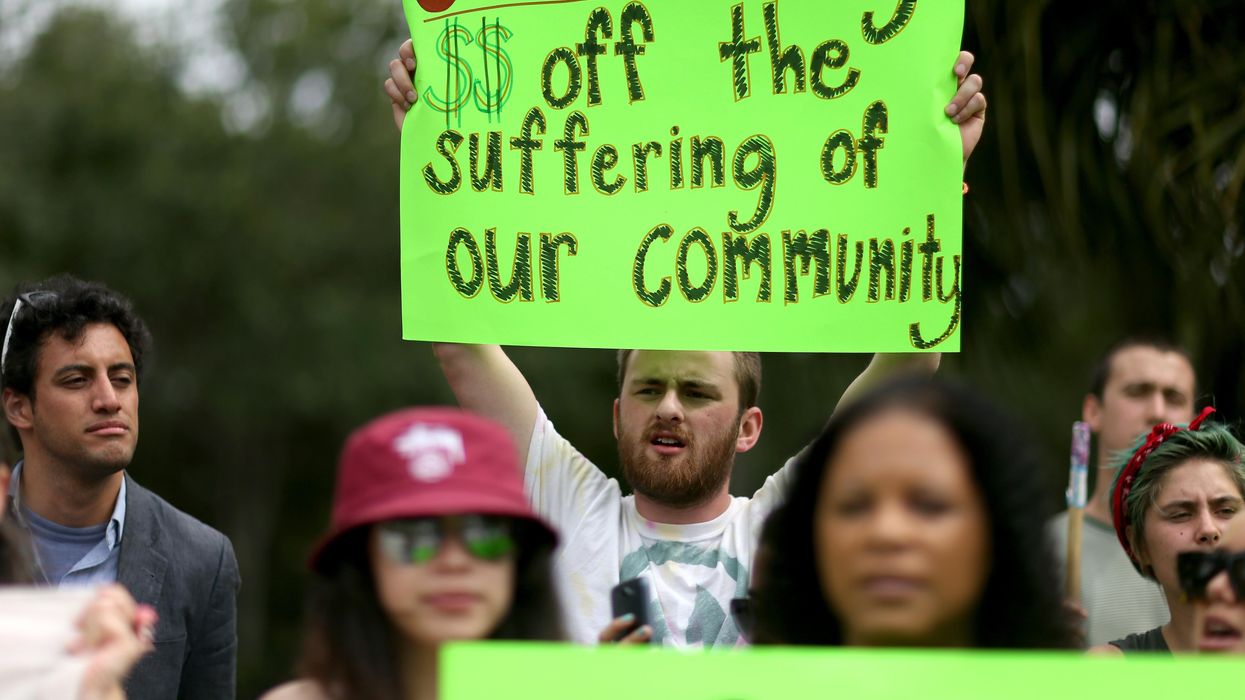"I can't breathe." The panic in my brother's faint voice struck me like a hammer blow. These words have become dreadfully familiar. We were at my uncle's house for an overnight stay and my brother's asthma had flared up. But for Black folk nationwide, these words are far more ominous.
My little cousins and I knew what to do. We set up a nebulizer and gave him medicine — and he could breathe easily again in less than five minutes. Compare that to the way police officers commonly treat unarmed Black men in this country. Imagine the repercussions if we hadn't helped my brother. Then, compare that to the impunity with which officers deal out murder and abuse to Black folk.
Now that everyone has a video camera in hand, the racism of policing and our justice system is starkly obvious. But how did we get here? What made our system so biased, and what is the history behind this?
President Richard Nixon began his drug war in 1971. His effort had racist roots and was based on bogus evidence as well as willful ignorance. Thus, part of Nixon's legacy is that Black people are arrested for drug possession at a far higher rate than whites, even though white and Black people do drugs at close to equal rates.
Because several of Nixon's successors expanded this policy — Ronald Reagan supported no-knock warrants like the one that got Breonna Taylor killed — an entire industry has a profit motive to ensure people of color are arrested more often. The private prison industry, which sprang up during the Reagan administration, prefers housing Black people because they cost less than white people, who are more often older and less healthy. Besides, their contracts with the states often dictate that a high percentage of their prison beds must be filled, or else the company gets paid for the empty beds.
The "corrections corporation" CoreCivic Inc. made so much revenue from its prisons last year that a mechanical counter tabulating a dollar every second would take almost 63 years to finish: $1.98 billion. But in order to keep the gravy train going, the industry participates in campaigns and influences lawmakers by investing some of its profit in candidates. It would take about three weeks for that same machine to tabulate all the money the industry put into the 2020 election: $2.7 million, which was 40 percent more than two years before.
Both Hillary Clinton and Donald Trump, and members of Congress ranging from Senate GOP Leader Mitch McConnell to Democratic Rep. Henry Cuellar of Texas, have all taken money from this industry at some point in their careers.
The industry has even influenced judges. This was evidenced by the 2009 kids for cash scandal in Pennsylvania, in which two judges were paid kickbacks by the owners of for-profit juvenile detention centers in return for sentencing hundreds of kids to time in those facilities. The industry does whatever it can politically to keep the inmates coming in and the cash flowing, including pushing for harsher laws and longer sentencing periods.
The undue influence of money in our election system makes it close to impossible for we the people to stop this injustice. So, how do we fix it? We fix it by getting rid of that influence. Amending the U.S. Constitution is the best way to do this. We need language in there to prevent dollars from drowning out the voices of average Americans. Personally, I'm not sure what the exact language should be. We would decide that together at a convention to propose the amendment.
This is why I volunteer with Wolf-PAC. Our plan is to propose real reform of our campaign finance system through a convention of the states. Five states out of the 34 we need have already passed legislation calling for an Article V convention, and our activism contributed to these successes.
Amending the Constitution is the only way to bypass our broken Congress and the Supreme Court. Besides, we must make this change permanent. So join us. We need all of the help we can get.



















Marco Rubio is the only adult left in the room